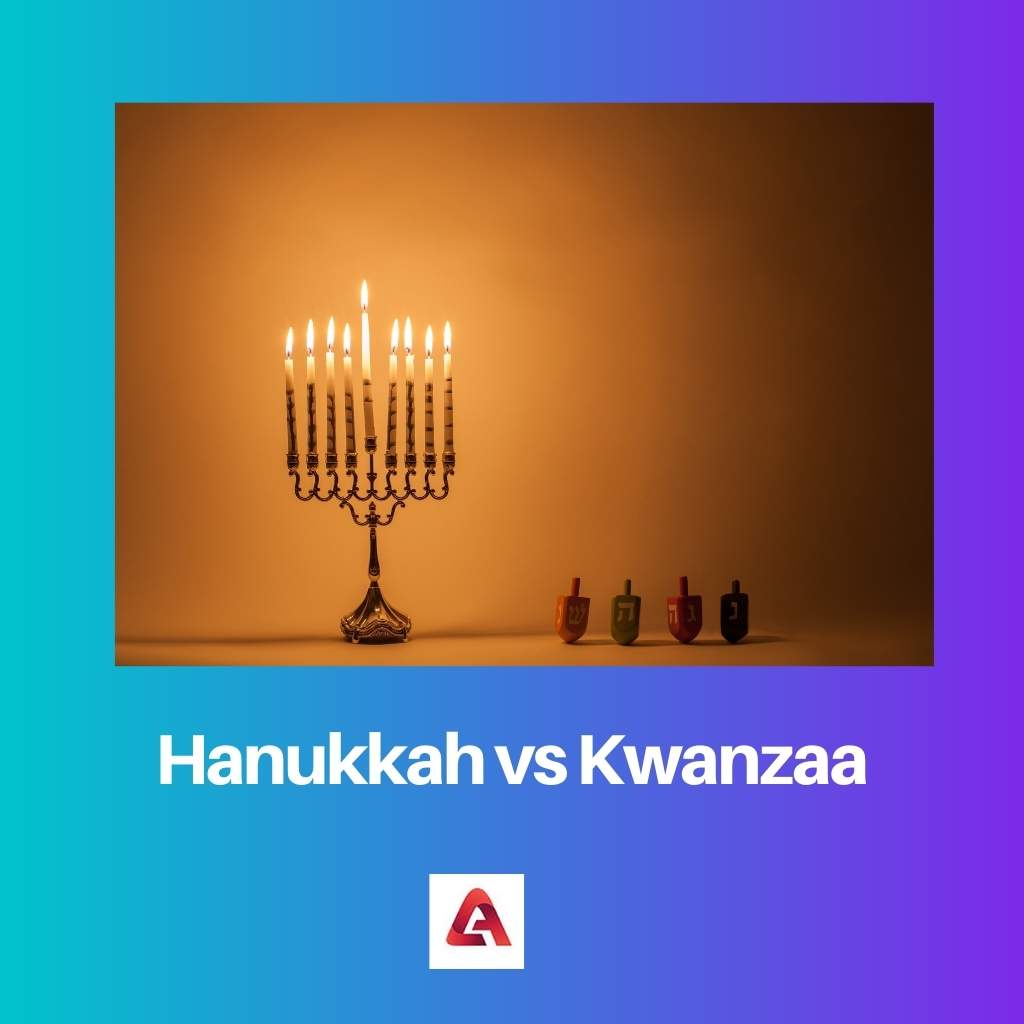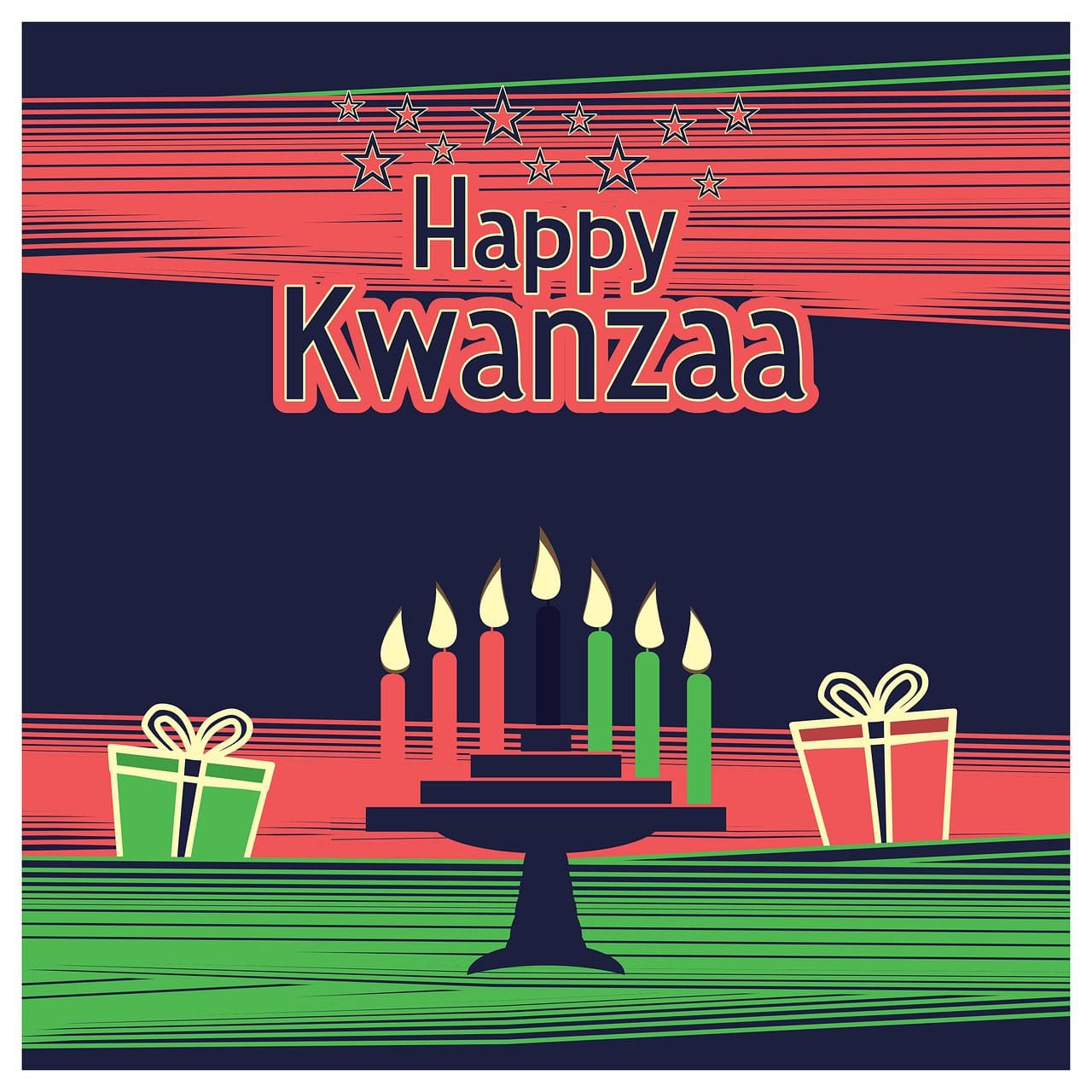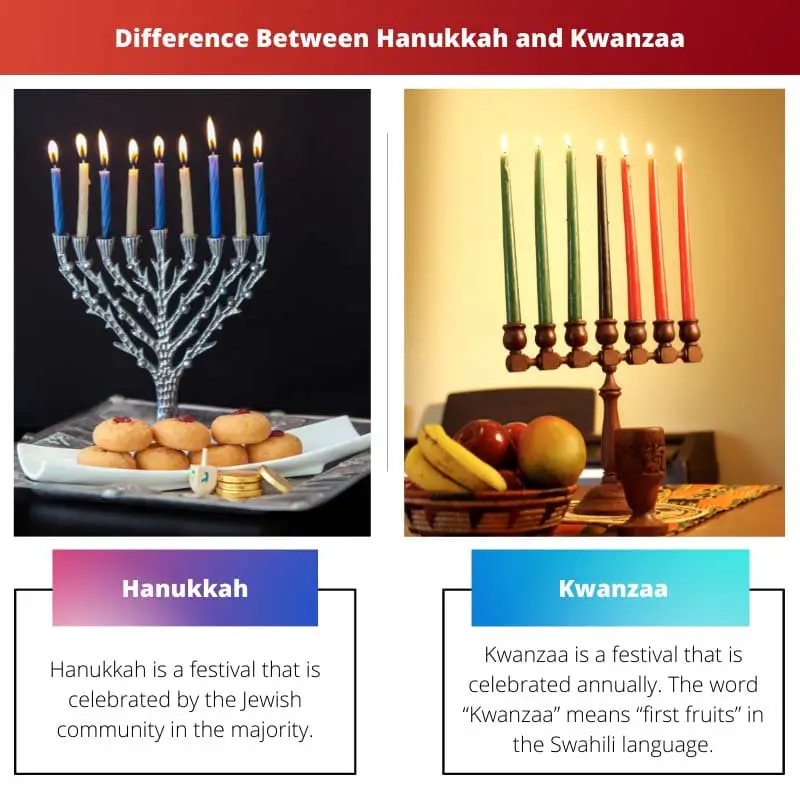The world that we humans live in is quite diverse and unique. People belonging to various religions and communities reside in various parts of the world. These several communities and religions celebrate their culture and their festivities.
There are several festivals that are celebrated by various people. However, these festivities do not have any sort of rules or restrictions regarding who can celebrate them. People can celebrate festivals no matter what their religion is because these festivals are all about happiness and prosperity.
People who migrate from their native countries also celebrate several festivals in whichever country they are in. People consider these festivals as a medium to spend time together with their loved ones and share their happiness. Two such festivals are 1. Hanukkah, and 2. Kwanzaa.
Key Takeaways
- Hanukkah is a Jewish holiday commemorating the rededication of the Second Temple in Jerusalem, while Kwanzaa is an African-American and Pan-African celebration of cultural heritage and values.
- Hanukkah lasts eight days and nights, while Kwanzaa is observed over seven days.
- Hanukkah involves lighting the menorah, playing dreidel, and eating oil-based foods, whereas Kwanzaa focuses on the Nguzo Saba (Seven Principles) and incorporates candlelighting, storytelling, and a feast.
Hanukkah vs Kwanzaa
Hanukkah, also known as the Festival of Lights, is a Jewish holiday that is celebrated for eight days in December. It commemorates the rededication of the Second Temple in Jerusalem. Kwanzaa is an African American holiday celebrated seven days from December 26 to January 1. It was created in 1966 by Dr Maulana Karenga to celebrate African American culture and heritage.

Hanukkah is a festival that is celebrated by the Jewish community in the majority. This festival honours the retrieval of Jerusalem during the second century BCE.
It was recovered at the beginning of the Maccabean rebellion against the Seleucid Empire. This festival is also considered and known as the Festival of Lights because of the rituals that are followed and performed by the people.
Kwanzaa is a festival that is celebrated annually. It is a festival that celebrates the African-American community. The festival is completely based on the different harvest traditions that are followed in different parts of Africa.
It is a cultural and ethnic festival. People exchange gifts, and their unity, creativity, faith, heritage, and culture are celebrated.
Comparison Table
| Parameters of Comparison | Hanukkah | Kwanzaa |
|---|---|---|
| Meaning | Dedication | Firstfruits |
| Duration | Eight days | Seven Days |
| Type | Jewish festival | African-American festival |
| Dates | Late November to late December, depending on the 25th of the Jewish month called “Kislev”. | 26 December to 1 January. |
| Rituals | Candle lighting each night, singing themes, recitation of prayers, eating fried foods and dairy foods, exchanging gifts, and playing a game called “dreidel”. | Singing songs, dancing, classic African drumming, storytelling and poetry recitation, eating foods. |
What is Hanukkah?
Hanukkah is a festival that is celebrated by the Jewish community in the majority. It is also celebrated by non-Jewish people. According to the Jewish months, Hanukkah is commenced on 25 Kislev, and it ends on 2 or 3 Tevet.
Various rituals are performed by the people who celebrate Hanukkah. However, lighting candles is one of the most popular rituals that is performed during Hanukkah.
This festival honours the retrieval of Jerusalem during the second century BCE. It was recovered at the beginning of the Maccabean rebellion against the Seleucid Empire.
This festival is also considered and known as the Festival of Lights because of the rituals that are followed and performed by the people.
Various rituals performed during Hanukkah include candle lighting each night, singing themes, recitation of prayers, eating fried foods and dairy foods, exchanging gifts, and playing a game called “dreidel”.
The word “Hanukkah” literally means dedication or to dedicate in the Hebrew language. There are several other interpretations regarding the etymology of the word.
People celebrate this festival for eight days and find joy in performing the rituals. People get to spend quality time with their loved ones. This not only unites people but also commemorates the precious history of the religion.
People enjoy performing these rituals and find this time of the year a joyous one.

What is Kwanzaa?
Kwanzaa is a festival that is celebrated annually. The word “Kwanzaa” means “first fruits” in the Swahili language. It is a Swahili phrase. This festival celebrates the harvest traditions that are followed by the people in various parts of Africa. Maulana Karenga created this festival in the year 1966.
It is a festival that celebrates the African-American community. The festival is completely based on the different harvest traditions that are followed in different parts of Africa. It is a cultural and ethnic festival. People exchange gifts, and their unity, creativity, faith, heritage, and culture are celebrated.
Various rituals that are performed by the people during Kwanzaa include singing songs, dancing, classic African drumming, storytelling and poetry recitation, eating foods etc.
People from Africa faced racism, and the main reason why Maulana Karenga created this festival is that he wanted black people to celebrate a festival that was different from the festivals that are celebrated by the dominant society.
People celebrate this festival for seven days and find joy in performing the rituals. People get to spend quality time with their loved ones. This not only unites people but also commemorates the precious history of the community.
People enjoy performing these rituals and find this time of the year a joyous one.

Main Differences Between Hanukkah and Kwanzaa
- The duration of Hanukkah is the right day. On the other hand, the duration of Kwanzaa is seven days.
- Hanukkah is a Jewish festival. On the other hand, Kwanzaa is mostly celebrated by African and African-American people.
- Hanukkah is also known as the festival of lights. On the other hand, there is no other phrase or term by which Kwanzaa is addressed.
- The dates of Hanukkah depend on the Jewish month of Kislev every year. On the other hand, the days of Kwanzaa are fixed, and it is celebrated from 26 December to 1 January.
- Various rituals that are followed and performed during Hanukkah include candle lighting each night, singing themes, recitation of prayers, eating fried foods and dairy foods, exchanging gifts and playing a game called “dreidel” on the other hand, the rituals that are followed and performed during Kwanzaa include singing songs, dancing, classic African drumming, storytelling and poetry recitation, eating foods.




